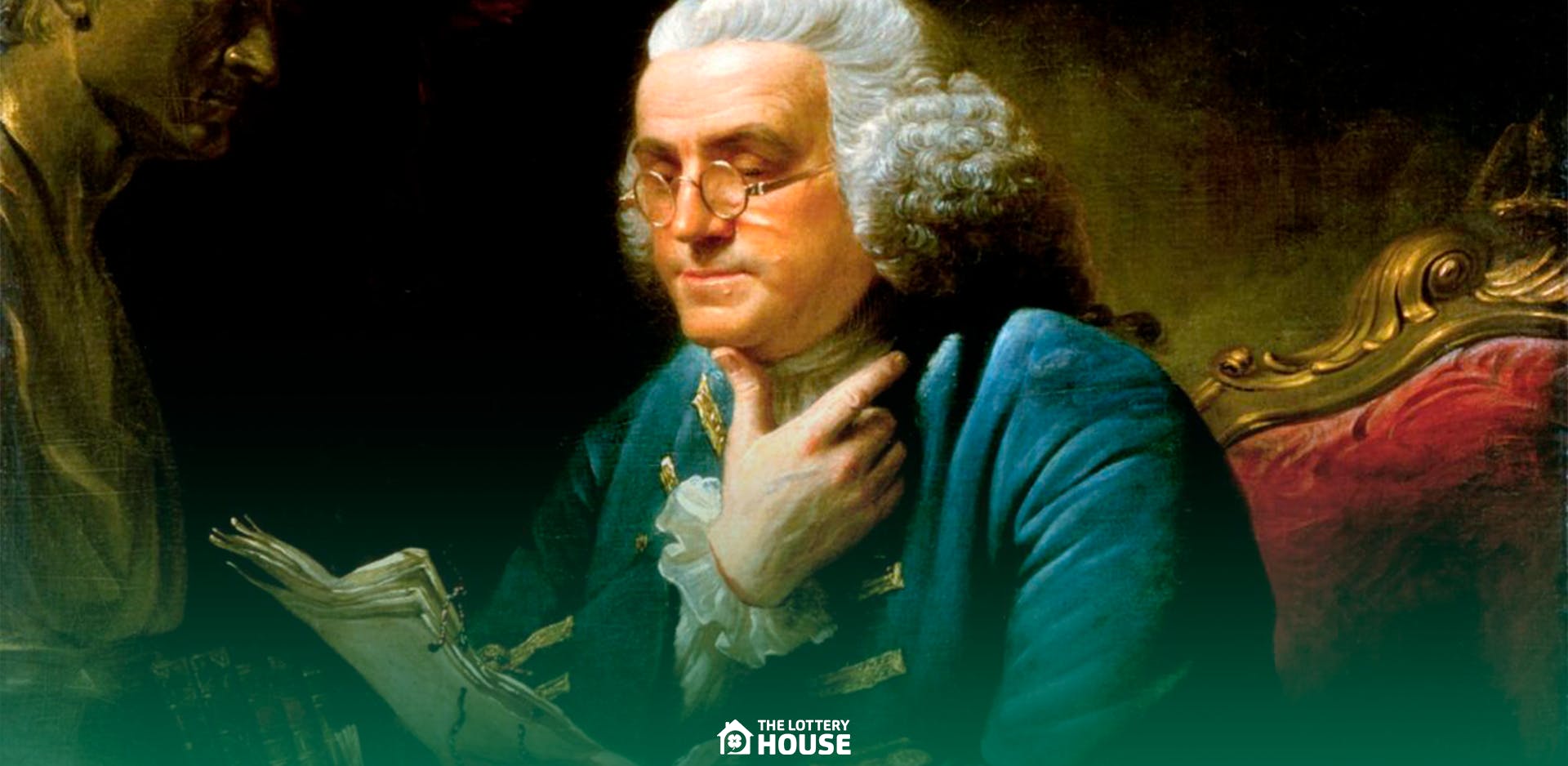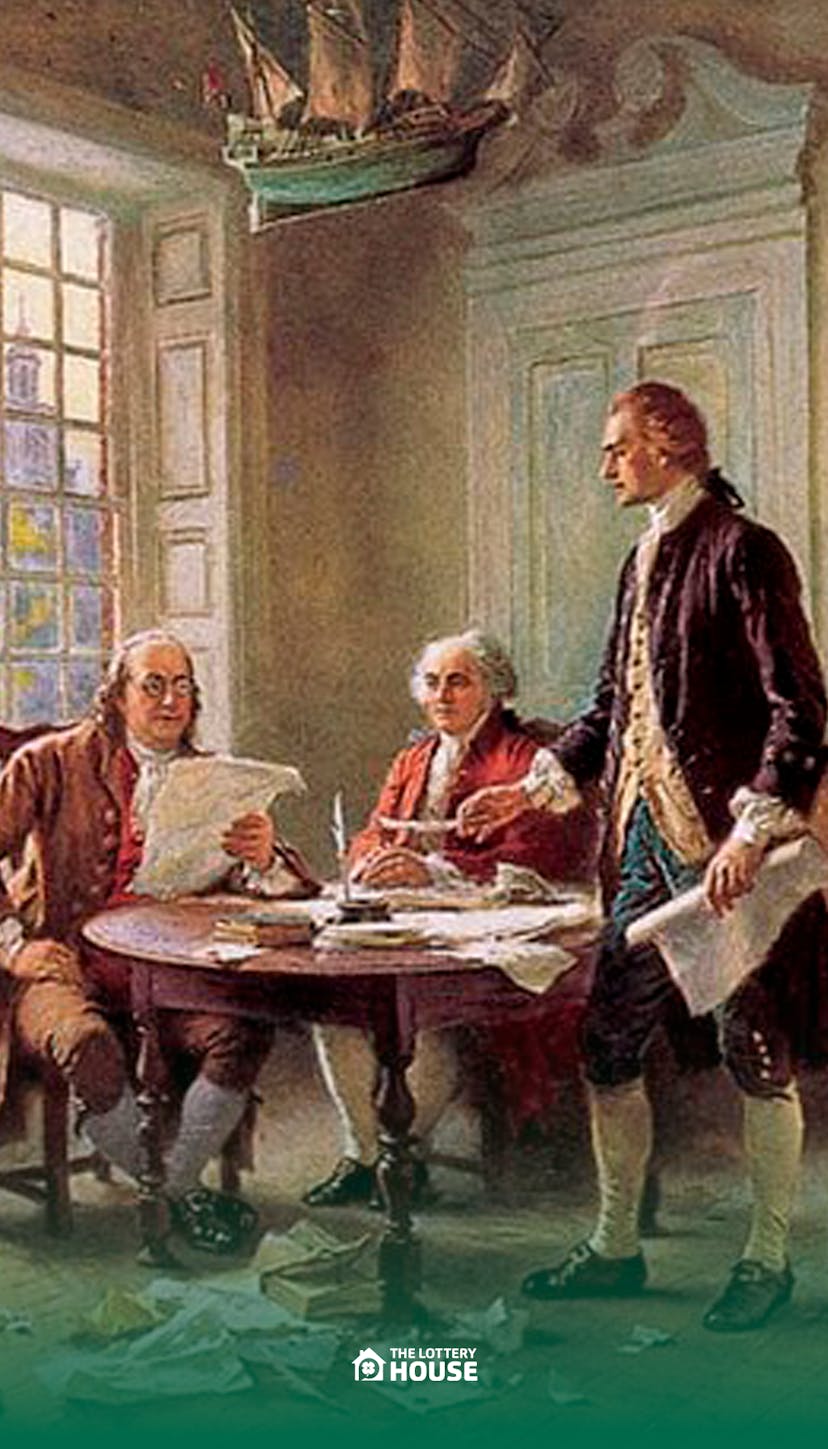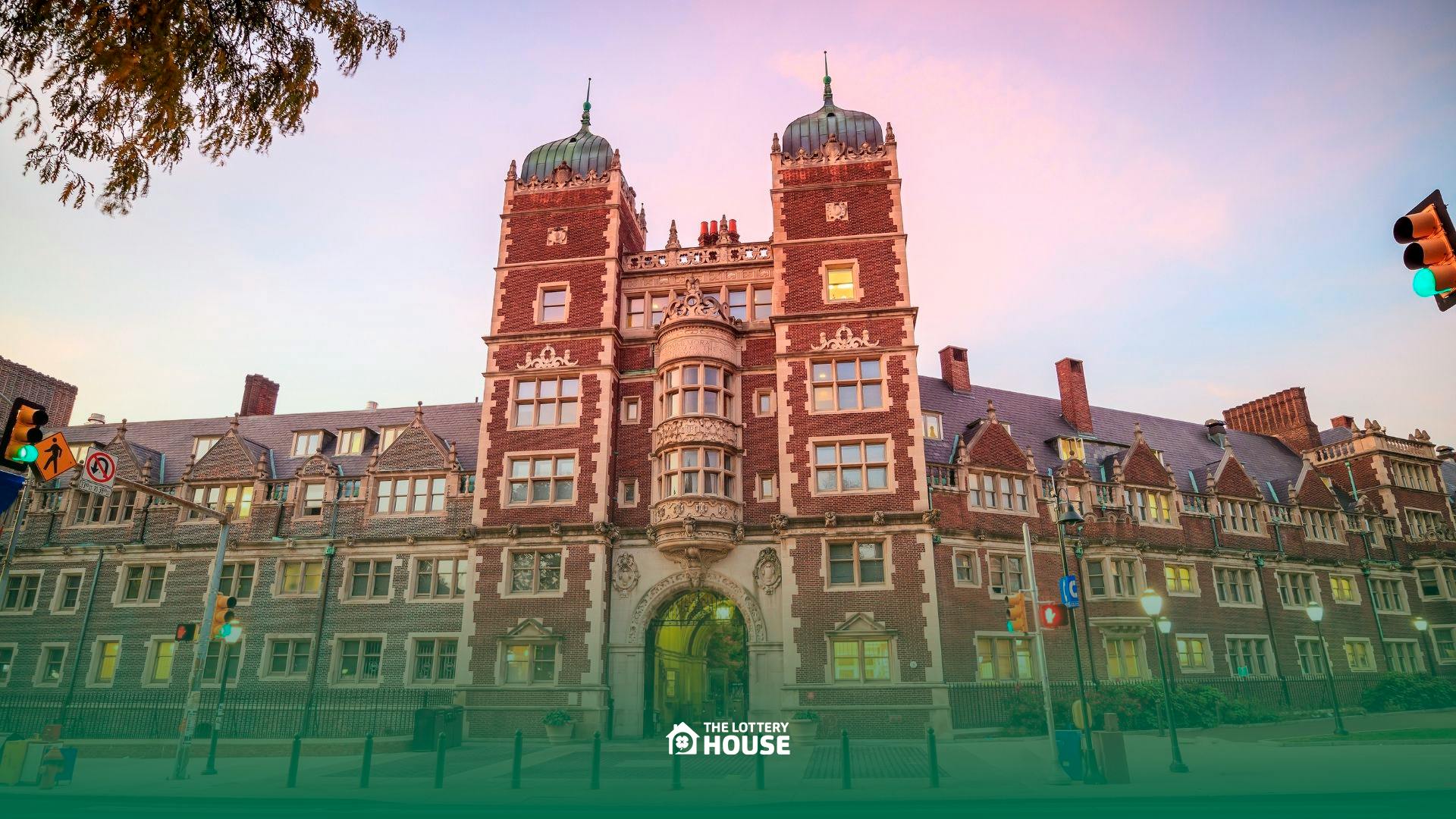Benjamin Franklin
The Man Who Made Science and Lotteries Walk Side by Side
The Lottery House
tags:
history
America

Do you know Benjamin Franklin?
Franklin was one of the most important historical figures in the United States of America. In this article, we will learn a little about his history, his important deeds, and also his relationship with lotteries and how they influenced his trajectory.

Who was Benjamin Franklin?
Benjamin Franklin was born in 1706, in Boston, Massachusetts, in the United States. He was a diplomat, writer, journalist, philosopher, politician, and American scientist and was also one of the Founding Fathers of the United States, being recognized as one of the greatest statesmen, scientists, and inventors in history. Benjamin Franklin was one of the signatories of the three main documents in the creation of the United States: the "Declaration of Independence", the "Peace Treaty", and the "Constitution".
His life was marked by several achievements and significant contributions to society, and lotteries played an important role in his journey.
From an early age, Franklin showed a lot of talent, curiosity, and intellectual prominence in various areas. He was an avid self-taught. The son of a soap maker, Franklin learned to read on his own, and at 8 years old he went to school, but at 10 years old he was forced to leave his studies to work with his father. At 12, he began working as an apprentice in his brother James's print shop, where he learned the printer's trade. Benjamin wanted to be a writer, but at a young age, he was not taken seriously by his brother.
However, it was through lotteries that Franklin found an intelligent solution to significantly impact the entire society of his time. At the time, lotteries were a common form of financing for public projects, and Franklin saw in them a chance to promote social welfare, investing his time and all dedication to what he believed in.
A little about Franklin's works
In 1748, at the age of 42, when he had already accumulated a large fortune, Benjamin Franklin decided to step away from business. Self-taught, Franklin never stopped studying and learned several languages, learned to play several instruments, and dedicated himself to science.
From his withdrawal from his ventures, Franklin began to dedicate his life more intensely to other projects, in addition to scientific studies.
In 1752, through various experiments in electricity, he invented the “lightning rod”, but, to know a little about how Franklin used lotteries to help hundreds of thousands of people, we need to go back to the year 1751.
Creation of the University of Pennsylvania

In 1751, Franklin proposed the creation of a lottery to finance the construction of the University of Pennsylvania, a higher education institution that would become one of the most prestigious in the United States and one of the most respected worldwide. Also known as Penn or UPenn, the University has had a significant social impact since its foundation. One of the greatest social impacts generated by the University is directly linked to academic excellence and the production of high-quality research.
One of the important discoveries resulting from research carried out at the University of Pennsylvania is related to the field of medicine and health. University researchers were responsible for developing a revolutionary therapy known as CAR-T therapy, which has the potential to revolutionize cancer treatment. CAR-T therapy is an innovative form of immunotherapy that involves the genetic modification of the patient's immune system's T cells.
This therapy has shown promising results in the treatment of certain types of cancer, such as acute lymphoblastic leukemia and B cell lymphoma.
At the time Benjamin began his efforts for the foundation ofthe University, he already recognized the value of studies, and argued that a quality university was essential for intellectual development and the progress of society. The lottery was approved and played a fundamental role in the foundation of the university.
In addition, Franklin also used lotteries as a way to promote social and infrastructural projects. In 1752, he established a lottery to help finance the creation of Pennsylvania's first public hospital, the Pennsylvania Hospital. The Hospital is still operating and is considered one of the oldest in the United States. The institution was a pioneer in providing quality medical care for the less fortunate, and the lottery was a crucial source of resources for its construction and operation.
As a politician, Franklin not only promoted the creation of lotteries but also worked on their regulation and transparency. He defended the importance of fair and honest draws, ensuring public trust in lotteries as a legitimate form of financing. Franklin also highlighted the need to allocate funds raised through lotteries to public interest projects, such as education, health, and infrastructure.
In addition to his involvement with lotteries, Franklin left a lasting legacy in many other areas. Franklin set a great example of how modern societies can beneficially use all the potential of lotteries. Benjamin Franklin died in Philadelphia, United States, on April 17, 1790, but left a legacy and taught the world to do a lot with few resources. It is important to emphasize that as one of the founders of the United States, he did more than simply being one of the signatories, but helped in drafting the Declaration of Independence and actively participating in the drafting of the country's Constitution.
The life of Benjamin Franklin is an example for any human being, and shows the incomparable power that lotteries have to change entire communities, and in this case, the entire world, with technological solutions. Through his work with lotteries, Franklin was able to boost social projects, and contribute to the well-being of society, leaving a legacy that lasts to this day.